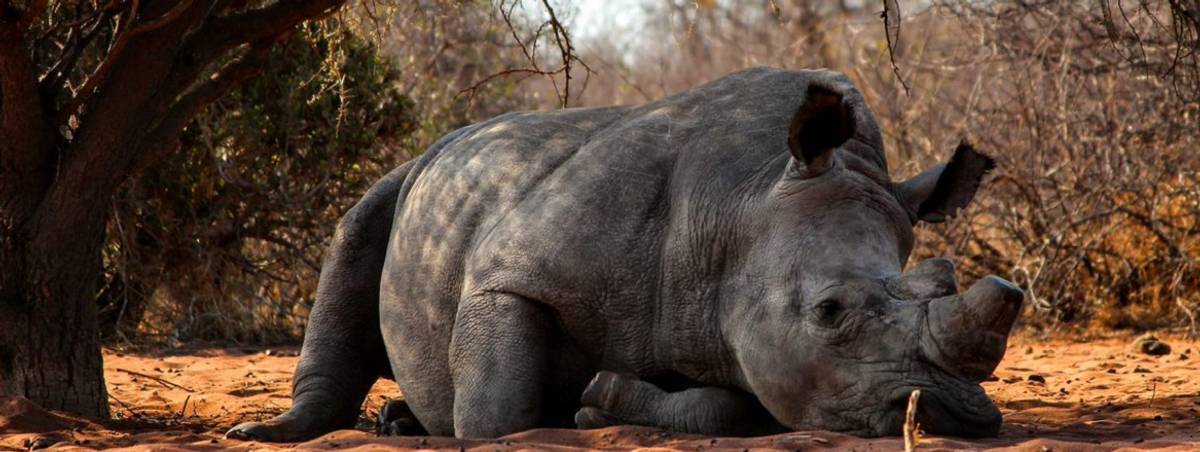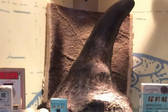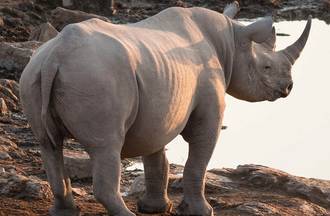Follow the Money II: Capacity-Building to Combat Illegal Wildlife Trade in East and Southern Africa
This project delivered tailored cross-sector capacity-building information on disrupting wildlife-linked illicit financial flows in East and Southern Africa, accompanied by rapid-reference guides and an e-learning resource.
This project responded to further demand created by RUSI’s 2016–18 illegal wildlife trade (IWT) Challenge Fund project ‘Follow the Money: Disrupting Wildlife-Linked Illicit Financial Flows in Kenya, Tanzania and Uganda’. It sought to advance the ‘follow the money’ approach to IWT research through expanded analysis and engagement across a broader range of countries, including Malawi, Mozambique and Zambia.
Our effort aimed to address the low-risk financial environment that allows criminal and other corrupt actors to reap vast profits from IWT, by bolstering capacity to conduct financial investigations in IWT cases in East and Southern Africa. It did so through multi-agency capacity-building workshops, the delivery of legally-tailored Financial Intelligence Handbooks for Malawi, Mozambique, Zambia, Tanzania, Kenya and Uganda, as well as the production of a 16-minute e-learning video for global law-enforcement agencies.
In 2021-23, RUSI is continuing this work by conducting multi-agency historic case review exercises in Malawi, Zambia, Uganda and Namibia, also funded by the UK Government IWT Challenge Fund.
Project sponsor
Illegal Wildlife Challenge Fund
Funded by the UK Government through the Illegal Wildlife Trade Challenge Fund.
Illegal Wildlife Challenge Fund
Project team
David Artingstall
RUSI Associate Fellow, CFS
Cathy Haenlein
Director of Organised Crime and Policing Studies
Organised Crime and Policing
Tom Keatinge
Director, CFS
Centre for Finance and Security
Alexandria Reid
RUSI Associate Fellow, OCP | SHOC Network Member - Researcher
Neil Bennett, Illicit Finance Expert and Trainer
Aims and objectives
Capacity-building activities were based on extensive research into the forms and dynamics of money flows linked to IWT, as well as a strategic assessment of existing capacity to address them. Key-informant interviews were conducted with 90 representatives from government ministries, wildlife authorities, anti-corruption commissions, financial intelligence units, commercial banks, mobile money operators, international organisations and NGOs.
The findings informed the delivery of multi-agency capacity building, bridging the public and private sector. In total, 21 days’ training were delivered to 51 delegates from seven government agencies and 11 banks in Malawi; 50 delegates from nine government agencies and 16 banks in Mozambique; and 58 delegates from nine government agencies and 11 banks in Zambia.
These practitioner-focused resources provided practical guidance on wildlife-linked financial investigation, tailored to each country. All resources can be viewed here.
The project aimed to contribute to poverty alleviation by building capacity to target the high-level actors financing and controlling IWT networks, thereby reducing the disproportionate focus on low-level, often (but not always) rural and poor poachers who are otherwise easily replaced by members of a criminal network. Such figures are often essential financial contributors in their own communities and imprisonment or fines can drive some households into poverty and food insecurity.
Project outputs
Six legally-tailored financial intelligence handbooks for Malawi, Mozambique, Zambia, Tanzania, Kenya and Uganda. These handbooks provide practical guidance on the techniques and entry points for an IWT financial investigation.
A 16-minute financial investigations e-learning video targeting a global law-enforcement audience. The resource is composed of the Environmental Investigation Agency’s original footage of wildlife seizures, law-enforcement activity and images, as well as stock images and bespoke RUSI graphics.
BBC News article in October 2018, ‘Pangolin Survival: How “Following the Money” Could Save Lives’, which received over 276,000 views from an international audience. https://www.bbc.co.uk/news/world-45784627
RUSI wrote a peer learning article with project findings for the IWT Challenge Fund Newsletter. https://iwt.challengefund.org.uk/assets/uploads/IWT-Newsletter-May-2019-Endangered-Species-Day-FINAL.pdf (see p. 11)
The project also disseminated findings from the project by speaking at multiple high-profile events. Cathy Haenlein chaired the main session on IWT and illicit financial flows and Tom Keatinge delivered a keynote speech at the 2018 London Conference. Cathy Haenlein moderated a panel in the main hall of the 2018 London Conference on ‘Corruption and illegal wildlife trade: how to tackle it’.
In addition, in October 2018 RUSI shared findings from the project by hosting the event ‘The Wildlife Trafficking-Security Nexus: Targeting the Organised Crime Threat’, chaired by former UK Foreign Secretary William Hague, with 108 high-level attendees. The Wildlife Trafficking-Security Nexus: Targeting the Organised Crime Threat
In 2020, Alexandria Reid delivered a Refinitiv webinar to over 1850 registered attendees from the private sector and a lunch briefing to leading lawyers from Hogan Lovells LLP.
Findings were also shared through regularly updates to the expert working group of the United for Wildlife Financial Taskforce, reaching over 40 global financial institutions at each meeting.
Project impact
Participants demonstrated significant learning progress in mastering tools required for financial investigation. In all countries, post-course surveys showed knowledge improvements on the methods and money flows requiring investigation, as well as awareness of the alternative legislation that can be used to prosecute IWT cases.
"With the skills learned, I will be more open-minded in my investigations, focusing on every financial aspect of the inquiry to form my cases."
– Anti-Corruption Commission Investigator, Zambia
"As a prosecutor, the knowledge gained will help with coming up with the proper charges [so as] to ensure that every aspect of the crime is covered."
– Prosecutor, Department of Public Prosecutions, Malawi
"I now have a better conceptualisation of the need to disseminate more spontaneous disclosures beyond the normal financial intelligence reports."
– Minister, Gabinete de Informação Financeira de Moçambique (GIFiM), Mozambique
The project also supported and directly contributed to the global push to mainstream financial investigations into IWT cases. From the outset, the project engaged with the Financial Action Task Force (FATF) and the World Bank (both in writing and in face-to-face meetings) to encourage them to incorporate the record of fighting against IWT into mandatory mutual evaluations on anti-money laundering performance.
The impact of the project was evinced by RUSI’s invitation to privately brief the Chinese president of the FATF on our findings and the subsequent inclusion of five references to RUSI’s work in the 2020 FATF IWT report. This represented the FATF’s first engagement with IWT as a ‘predicate offence’, with FATF calling on all affected jurisdictions to enhance efforts to disrupt the financial dimensions of IWT. The FATF’s engagement with IWT will have a significant impact in light of its commitment to measuring countries’ progress against IWT as a financial crime in June 2021.










